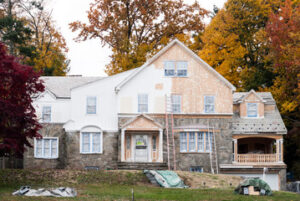Senior Services Mocksville NC provides programs and services for older adults. These include a variety of social activities and specialized home care. Some programs are free, while others require a small fee. These fees help support the programs and services.

Non-medical care in housing for seniors includes: emergency call systems, homemaking services, home delivered meals (based on a menu), respite care, and transportation services.
An assisted living community is a senior care option that bridges the gap between independent living and nursing homes. It allows seniors to enjoy a maintenance-free lifestyle with the comfort of knowing that help is always nearby if it’s needed. Typically, these communities provide meals, housekeeping, transportation services and social activities in a homelike setting that’s comfortable for seniors to live in. Some offer private suites while others are more apartment-like. In addition, these facilities usually have medical staff available 24/7 to assist with medication management and other needs.
A good place to start is by evaluating your loved one’s ambulation and mobility levels. This assessment will give you an idea of what their current abilities are and how they may change over time. You should also review their medical history, which will help you understand any existing conditions and how those might impact their care needs.
Senior Communities
Several types of senior communities exist, based on the level of care and amenities offered. Independent living communities are designed for active seniors who no longer want to handle home maintenance or cook meals. They often offer restaurant-style dining, transportation services, and a variety of social activities to help residents stay active and connect with their peers.
Assisted living communities are the middle ground between independent living and nursing homes. They support seniors who need some assistance with daily activities like bathing and medication management, while still allowing them to retain as much independence as possible. These communities typically offer housekeeping and laundry services, meals, and access to fitness centers.
Skilled nursing facilities are for individuals who need round-the-clock medical attention. These facilities have licensed nurses and healthcare professionals on-site, providing skilled nursing care, rehabilitation services, and assistance with everyday tasks. Skilled nursing facilities are ideal for seniors who need surgery, are recovering from an illness, or are managing a chronic disease.
Continuing Care Retirement Communities, or CCRCs, are unique because they combine independent living, assisted living, and skilled nursing services in one community. This makes it easy for seniors to transition between levels of care as their needs change without having to move out of the community. These communities are often more expensive than other senior living options, and may require a large entrance fee and monthly fees. However, the cost savings on the back end can help offset the upfront costs. Many CCRCs also offer healthcare services on-site, making it easier for seniors to visit their doctors without having to schedule trips with family members.
Staying at Home
Most seniors want to stay in their own homes as long as possible. But, as we age, home maintenance becomes more difficult. It can become difficult to manage the yard work, cleaning the house, or running errands.
Senior services can help you stay at home by providing care experts to manage your needs. They can assist with meal planning, medication management, and running errands. You can get these services at home or in a senior community. The amount of care you receive varies depending on your needs. You can start with a little and gradually request more as you need it.
If you have limited income, you may qualify for free meals delivered to your door through the Meals-on-Wheels program. A case manager will assess your situation and create a service plan for you. Then, they will coordinate your home care services, transportation, and state and local entitlements.
The Borough of Westwood also has several programs that assist residents with staying at home. The Borough’s Senior Advisory Council meets monthly and reviews Area Plan Contract programs, recommends new services, participates in planning, advises on public information techniques, and acts as an advocate for the elderly community.
You can also find social activities and support groups, like the Friendly Visiting & Phone Calls program. This service matches carefully screened volunteers with seniors in need of extra companionship. This program has been making friendship matches since 1996.
Private Pay
Unlike home care options covered by insurance or government programs, private pay allows families to craft a custom plan for the types of services their loved one needs. This flexibility can help alleviate financial stress and reduce the risk of burnout for caregivers. However, it’s essential to understand the cost of private pay home care before making a commitment.
Individuals who choose private pay for their home care needs have a variety of financing methods available to them. These include personal savings, retirement funds, insurance proceeds from long-term care policies, home equity loans (e.g. reverse mortgages), or even family agreements through estate planning that set up reimbursement arrangements.
For those pursuing private pay home care, it’s important to do your research to find an agency that offers transparency and responsiveness. Schedule a consultation or interview to ensure that the agency can meet your unique home care needs. In addition, you may want to consider asking about financial assistance options and waivers available for low-income seniors or individuals with disabilities that can help cover the cost of home care services.
The most important factor when choosing private pay home care is to find a care provider that provides personalized, compassionate care. Private pay agencies like NY Health Care focus on ensuring that individuals receive the exact home care services they need, from companionship to specialized healthcare visits. This ensures that each person’s daily personal care routine is consistently met and that they have a trusted ally in their life to avoid feelings of loneliness and isolation. By focusing on this personalized approach, private pay home care providers can provide the highest quality of service for their clients.
Public Pay
A public pay is a salary paid by a government employee to perform a statutory duty or act in the public interest. Public pay is a way for governments to allocate resources to carry out the work they deem most important. The aim of public pay is to ensure that the needs of the most vulnerable are met.
Search rates of pay for government of Canada employees, including federal public service (FPS) staff represented by a union and senior excluded FPS staff. This tool allows users to search the rates of pay by GS level, step and locality.


